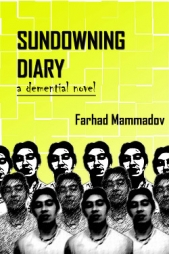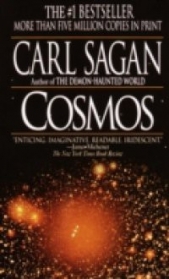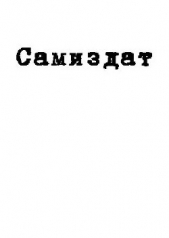[New Sun 04] The Citadel of the Autarch
![[New Sun 04] The Citadel of the Autarch](/uploads/posts/books/no-cover.jpg)
[New Sun 04] The Citadel of the Autarch читать книгу онлайн
Внимание! Книга может содержать контент только для совершеннолетних. Для несовершеннолетних чтение данного контента СТРОГО ЗАПРЕЩЕНО! Если в книге присутствует наличие пропаганды ЛГБТ и другого, запрещенного контента - просьба написать на почту [email protected] для удаления материала
Three days more passed before I was strong enough to jump and, gripping its lower edge with one hand, pull myself up to look out. When that day came, I saw a rolling green country dotted with butterflies—a place so foreign to what I had expected that I felt I might be mad and lost my hold upon the window in my astonishment. It was, as I eventually realized, the country of treetops, where ten-chain hardwoods spread a lawn of leaves, seldom seen save by the birds.
An old man with a knowledgeable, evil face had bandaged my cheek and changed the dressings on my leg. Later he brought a lad of about thirteen whose bloodstream he linked with mine until the boy’s lips fumed the hue of lead. I asked the old leech where he came from, and he, apparently thinking me a native of these parts, said, “From the big city in the south, in the valley of the river that drains the cold lands. It is a longer river than yours, is the Gyoll, though its flood is not so fierce.”
“You have great skill,” I said. “I’ve never heard of a physician who did as much. I feel well already, and wish you would stop before this boy dies.”
The old man pinched his cheek. “He’ll recover quickly—in time to warm my bed tonight. At his age they always do. Nay, it’s not what you think. I only sleep beside him because the night-breath of the young acts as a restorative to those of my years. Youth, you see, is a disease, and we may hope to catch a mild case. How stands your wound?”
There was nothing—not even an admission, which might have been rooted in some perverse desire to maintain an appearance of potency—that could have convinced me so completely as his denial. I told him the truth, that my right cheek was numb save for a vague burning as irritating as an itch, and wondered which of his duties the miserable boy minded most.
The old man stripped away my bandages and gave my wounds a second coating of the foul-smelling brown salve he had used previously. “I’ll be back tomorrow,” he told me. “Although I don’t think you’ll need Mamas here again. You’re coming along nicely. Her exultancy” (with a jerk of the head to show this was an ironical reference to Agia’s stature) “will be most pleased.”
I said, in what I sought to make an offhand way, that I hoped all his patients were doing as well.
“You mean the delator who was brought in with you? He’s as well as can be expected.” He turned aside as he spoke, so that I would not see his frightened expression. On the chance that I might gain influence with him that would enable me to aid the Autarch, I praised his understanding of his craft extravagantly and ended by saying that I failed to comprehend why a physician of his ability consorted with these wicked people.
He looked at me narrowly, and his face grew serious. “For knowledge. There is nowhere a man in my profession can learn as I learn here.”
“You mean the eating of the dead? I have shared in that too, though they may not have told you so.
No, no. Learned men—parrticularly those of my profession—practice that everywhere, and usually with better effect, since we are more selective of our subjects and confine ourselves to the most retentive tissues. The knowledge I seek cannot be learned in that way, since none of the recently dead possessed it, and perhaps no one has ever possessed it.”
He was leaning against the wall now, and seemed to be speaking as much to some invisible presence as to me. “The pasts sterile science led to nothing but the exhaustion of the planet and the destruction of its races. It was founded in the mere desire to exploit the gross energies and material substances of the universe, without regard to their attractions, antipathies, and eventual destinies. Look?” He thrust his hand into the beam of sunshine that was then issuing from my high, circular window. “Here is light. You will say that it is not a living entity, but you miss the point that it is more, not less. Without occupying space, it fills the universe. It nourishes everything, yet itself feeds upon destruction. We claim to control it, but does it not perhaps cultivate us as a source of food? May it not be that all wood grows so that it can be set ablaze, and that men and women are born to kindle fires? Is it not possible that our claim to master light is as absurd as wheats claiming to master us because we prepare the soil for it and attend its intercourse with Urth?”
“All that is well said,” I told him. “But nothing to the point. Why do you serve Vodalus?”
“Such knowledge is not gained without experiment” He smiled as he spoke, and touched the shoulder of the boy, and I had a vision of children in flames. I hope that I was wrong.
That had been two days before I pulled myself up to the window. The old leech did not come again; whether he had fallen from favour, or been dispatched to another place, or had merely decided no further attentions were necessary, I had no way of knowing.
Agia came once, and standing between two of Vodalus’s armed women spat in my face as she described the torments she and Hethor had contrived for me when I was strong enough to endure them.
When she finished, I told her quite truthfully that I had spent most of my life assisting at operations more terrible, and advised her to obtain trained assistance, at which she went away. Thereafter for the better part of several days I was left alone. Each time I woke, I felt myself almost a different person, for in that solitude the isolation of my thoughts in the dark intervals of sleep was nearly sufficient to deprive me of my sense of personality. Yet all these Severians and Theclas sought freedom. The retreat into memory was easy; we made it often, reliving those idyllic days when Dorcas and I had journeyed toward Thrax, the games played in the hedge-walled maze behind my father’s villa and in the Old Yard, the long walk down the Adamnian Steps that Agia and I had taken before I knew her for my enemy.
But often too, I left memory and forced myself to think, sometimes limping up and down, sometimes only waiting for insects to enter the window so that I might for my amusement pluck them from the air. I planned escape, though until my circumstances altered there seemed no possibility of it; I pondered passages from the brown book and sought to match them to my own experiences in order to produce, insofar as possible, some general theory of human action that would be of benefit to me should I ever free myself. For if the leech, who was an elderly man, could still pursue knowledge despite the certainty of imminent death, could not I whose death appeared more imminent still, take some comfort in the surety that it was less certain?
Thus I sifted the actions of the magicians, and of the man who had accosted me outside the jacal of the sick girl, and of many other men and women I had known, seeking for a key that would unlock all hearts.
I found none that could be expressed in few words: “Men and women do as they do because of thus and so...” None of the ragged bits of metal fit—the desire for power, the lust of love, “the need for reassurance, or the taste for seasoning life with romance. But I did find one principle, which I came to call that of Primitivity, that I believe is widely applicable, and which, if it does not initiate action, at least seems to influence the forms that action takes. I might state it this way: Because the prehistoric cultures endured for so many chiliads, they have shaped our heritage in such a way as to cause us to behave as if their conditions obtained today.
For example, the technology that once might have permitted Baldanders to observe all the actions of the hetman of the lakeside village has been dust now for thousands of years; but during the eons of its existence, it laid upon him a spell, as it were, by which it remained effective though no longer extant.
In the same way, we all have in us the ghosts of longvanished things, of fallen cities and marvellous machines. The story I once read to Jonas when we were imprisoned (with how much less anxiety and how much more companionship) showed that clearly, and I read it over again in the ziggurat The author, having need for some sea-born fiend like Erebus or Abaia, in a mythical setting, gave it a head like a shipwhich was the whole of its visible body, the remainder being underwater—so that it was removed from protoplasmic reality and became the machine that the rhythms of his mind demanded.























